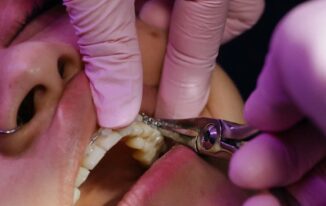There’s no official announcement that your baby-making days are behind you. No flashing sign, no one-size-fits-all timeline — just a slow shift. Maybe your periods stop, maybe your hormones feel all over the place, and most of all, maybe you’re wondering what’s going on with your body.
That’s when the question pops up: Can you still get pregnant after menopause?
It’s a question more people ask than you’d think, especially when menopause symptoms linger and things still feel unpredictable. Some turn to their doctor or Google, while others incorporate supplements like MENO to help them get back their balance.
In this article, you’ll learn if it’s possible to get pregnant after menopause, how to know if you’re experiencing this phase of life, and what can help you manage your symptoms.
Is It Possible To Get Pregnant After Menopause?
To start, it helps if you’re clear on what menopause actually means. It’s not just when your period starts ghosting you — it’s when it’s been completely gone for 12 months straight. No spotting, no surprises. That’s the medical benchmark. At that point, your ovaries have stopped releasing eggs, and estrogen production has slowed down.
Can you get pregnant after that? Naturally, no. Once you’re in true menopause, your body isn’t ovulating anymore, which means there’s no egg to meet up with sperm. It’s basic biology just doing its thing.
Can You Get Pregnant During Perimenopause?
Here’s where things get tricky. Perimenopause is the lead-up to menopause, and yes, you can still get pregnant.
Even though your periods may be irregular or spaced out, your ovaries are still releasing eggs, just not as consistently. That means ovulation can still happen, even if your cycle feels all over the place. And since you might go a few months without a period, it’s easy to assume you’re “done” when you’re actually not.
Doctors say this is one of the most common times for accidental pregnancies because your body’s changing, your symptoms are confusing, and it’s hard to know exactly where you stand hormonally. If you’re in the perimenopausal phase and not trying to conceive, birth control is something you should still consider.
How To Know If You’re in Menopause
Are you wondering if your baby-making window officially closed? Maybe you’re hoping for one last bundle of joy, or maybe you’re firmly in the “no thank you” camp. Either way, knowing where your body stands can bring a sense of clarity.
One of the biggest challenges is that menopause doesn’t come with a buzzer or a big announcement. What you’re likely experiencing is a slow shift — irregular periods, then months without one, then maybe one randomly shows up again. That rollercoaster is classic perimenopause, and it can last for years.
Actual menopause, on the other hand, is diagnosed after the fact, when you haven’t had any bleeding for 12 straight months. No guessing or surprise resets every time your period shows up.
But the signs go beyond your calendar. A doctor might look at your hormone levels, like consistently high FSH (follicle-stimulating hormone) and low estradiol, to confirm what’s happening internally. Add in symptoms like disrupted sleep, hot flashes, and vaginal dryness that doesn’t come and go, and that’s another strong clue.
If you’re still unsure, you’re not alone. Many people don’t know where perimenopause ends and menopause begins, and that’s where talking to a medical provider can help. They can guide you through testing and various options, whether that’s managing your symptoms, planning for the future, or just helping you know what’s next.
What Can Help With the Menopause Transition?
Whether you’re in the middle of perimenopause or fully past it, a few small things can make this stretch of life feel a little less frustrating. Eating regularly, staying hydrated, and getting some kind of daily movement — even just a walk — can all go a long way.
If your sleep’s a mess, try cutting screen time before bed or developing a wind-down routine that relaxes you. Feeling off? Jot it down. And seriously, talk to your people! Call your bestie, laugh with her, and vent if you need to. You’re not alone, and you’re not doing it wrong.
The Bottom Line
Can you get pregnant after menopause? Once you’re in full menopause — 12 months without a period and no ovulation — natural pregnancy isn’t possible. But during perimenopause? It’s still on the table. That’s why it helps to know exactly where your body’s at, especially if you’re not planning on any surprises.
No matter if you’re seeking to overcome weird symptoms or just trying to figure out what’s next, you’re doing better than you think. Stay curious, stay kind to yourself, and don’t be afraid to ask questions.



